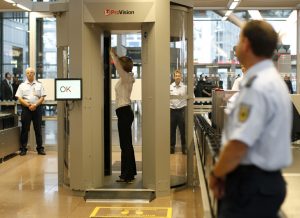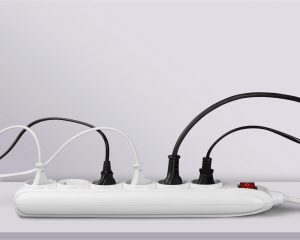Holiday Travel Tips for People Who Wear Hearing Aids
Rechargeable Hearing Aids Remember to take your charger unit in your carry-on luggage. Charger units for rechargeable hearing aids have lithium-ion batteries which are required by federal regulation to be carried in the cabin on flights. If you pack a charger unit in your checked luggage, it will be confiscated. Avoid losing your essential charger unit by following federal regulation. Also, you might want to place a sticky note in your luggage or a reminder on your smartphone to retrieve your charger unit (in case it is plugged in somewhere) before you leave your travel destination. A label with your name can help you identify your charger unit if it was lost or misplaced.

Airports can be very noisy and reverberant. Noise and echoing sound waves make hearing difficult, even for normal hearers. It’s easy to be distracted with fast food options, interesting people, flight change announcements, and your intended destination.
When you arrive at the departing gate at the airport, tell the flight staff that you are hearing-impaired and that you would like to be notified when it is time to board. You must self-identify for the airlines to be know how to assist you. All airlines have policy which follows the Air Carriers Act that includes reasonable accommodations for hearing-impaired passengers. The agents will be happy to alert you directly for pre-boarding instructions, awareness of P.A system announcements, changes in flight time, or gate arrival. Sometimes they will even give you early boarding preference.
When going through security checkpoints, it’s a good idea to inform the TSA agent that you are hearing-impaired. That way if you do not respond as officials expect, they know you are not deliberately being uncooperative or acting suspiciously.

Winter activity can still present a challenge for controlling moisture Wipe your hearing instruments off with a soft dry cloth, open the battery door, and place them in a Dri Aid kit (with dessicant) overnight while you are asleep. Opening the battery door allows air to circulate and prevents the hearing aids from squealing while they are enclosed.

Wearing a hat that covers your ears can induce squealing feedback That doesn’t mean something is wrong with your hearing aids. Just go into your smartphone app and turn down treble or turn down overall volume.
Extreme temperatures Hearing aids that are in freezing temperatures for prolonged periods of time can stop working temporarily. Just go inside and let the electronics warm up for about 10 minutes (don’t apply direct heat) and they should work again.
If you have a back-up pair of hearing aids, take them with you Wear the back-up pair for adventures like skiing, cross-country hiking, or snowmobiling. Why have your vacation ruined because you can’t hear?
The best way not to lose your hearing aids… is to keep them in your ears. If you want to sleep on the plane, just mute them with your smartphone app or slightly open the battery compartment to turn them off.
Take lots of batteries Stash batteries in your luggage, carry-on bag, glove compartment, or pocket. If you forgot to take them, just remember the color of the tab on the batteries you normally use. The color of the tab is consistent where ever you buy batteries in the United States. If your hearing aids won’t come on after inserting new batteries, try some from a different pack. Despite quality control efforts, occasionally a whole pack of batteries is bad. Avoid jumping to the conclusion that your hearing aids are broken. Fresh batteries may be all that is needed to get you hearing again. Note: Hearing aids with internal removable rechargeable batteries may be placed in checked luggage.
Companion microphone If you have a companion microphone, take it with you for wireless connectivity with your hearing aids in the toughest listening situations. A companion microphone is a device worn by the person you wish to hear. This device will help you overcome distance and send a clean signal direct to your hearing aids to give a very favorable advantage in noisy listening situations. The person you place it with will feel very special, because you are making sure you can hear him or her.

Keep your cords In general, you can prevent losing your cords for charging accessories by packing a small power strip in your luggage. Plug your smartphone charger and accessory chargers in the power strip so that all devices are kept together your hotel room. That way when you leave, all essential electronics will stay with you.
Speak up for yourself! When a person with a broken leg has to get through the door, people instinctively know what to do to help – and they are usually happy to hold the door open. Hearing impairment is different, because it is invisible. So be proactive and tell people what you need. For example, ask for a table in the quiet section of the restaurant or away from a noise source. People will respond with kindness. It’s okay to ask. Santa is listening, they have to be nice….






